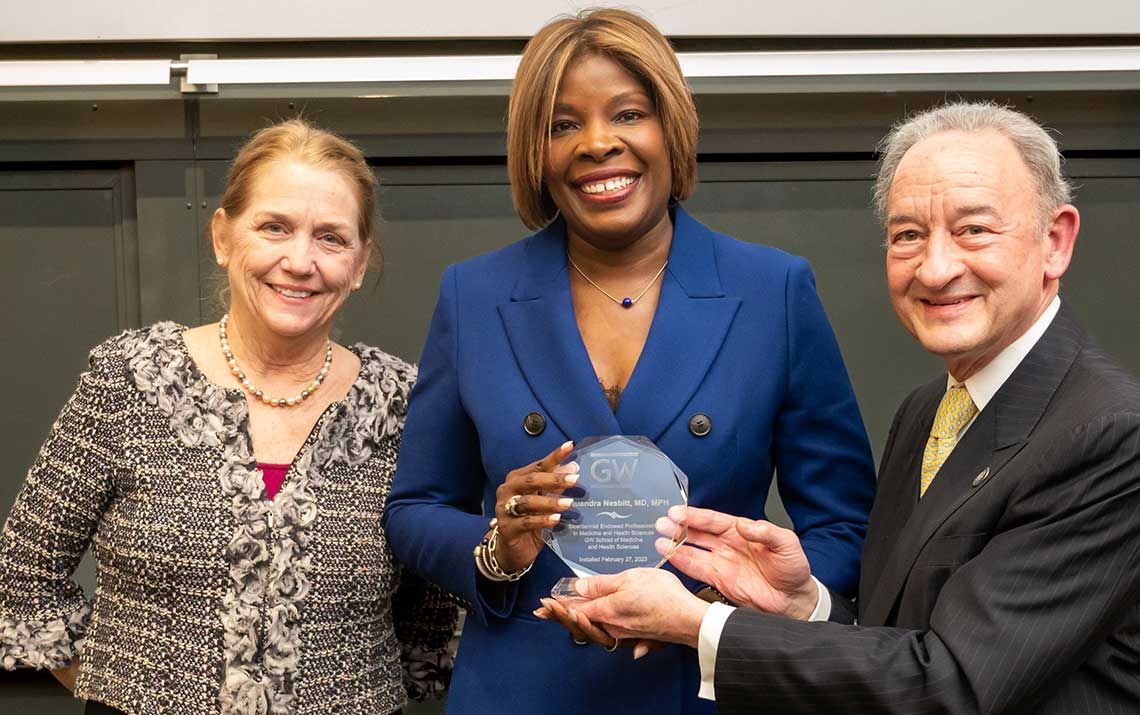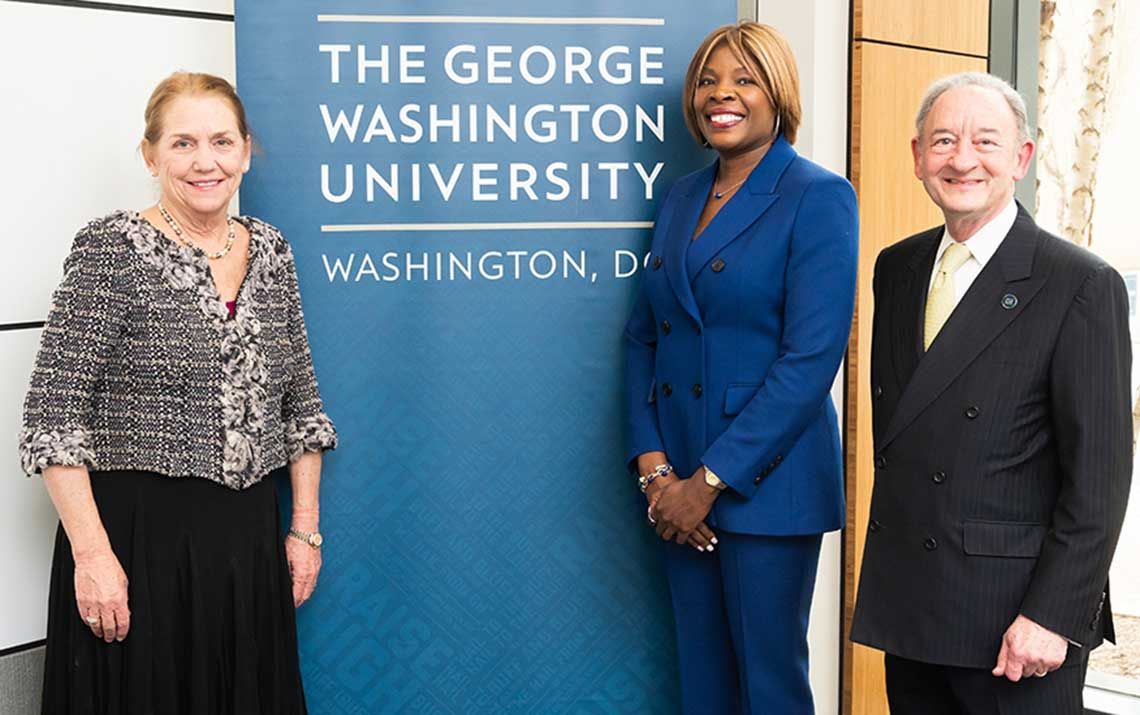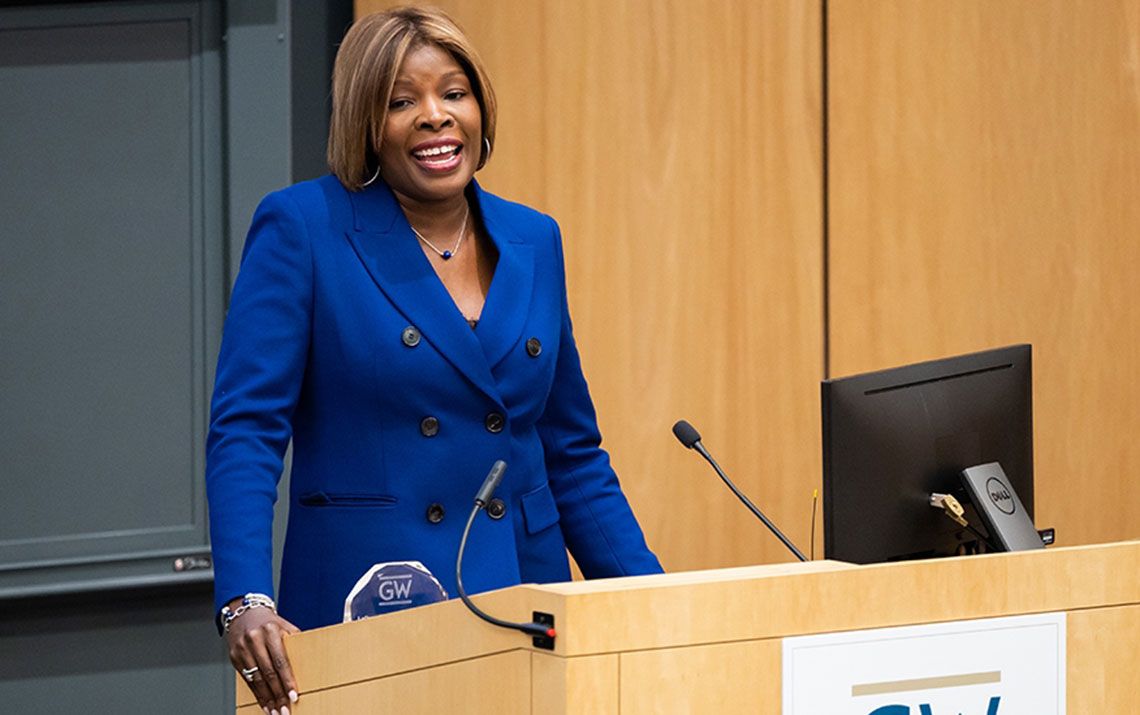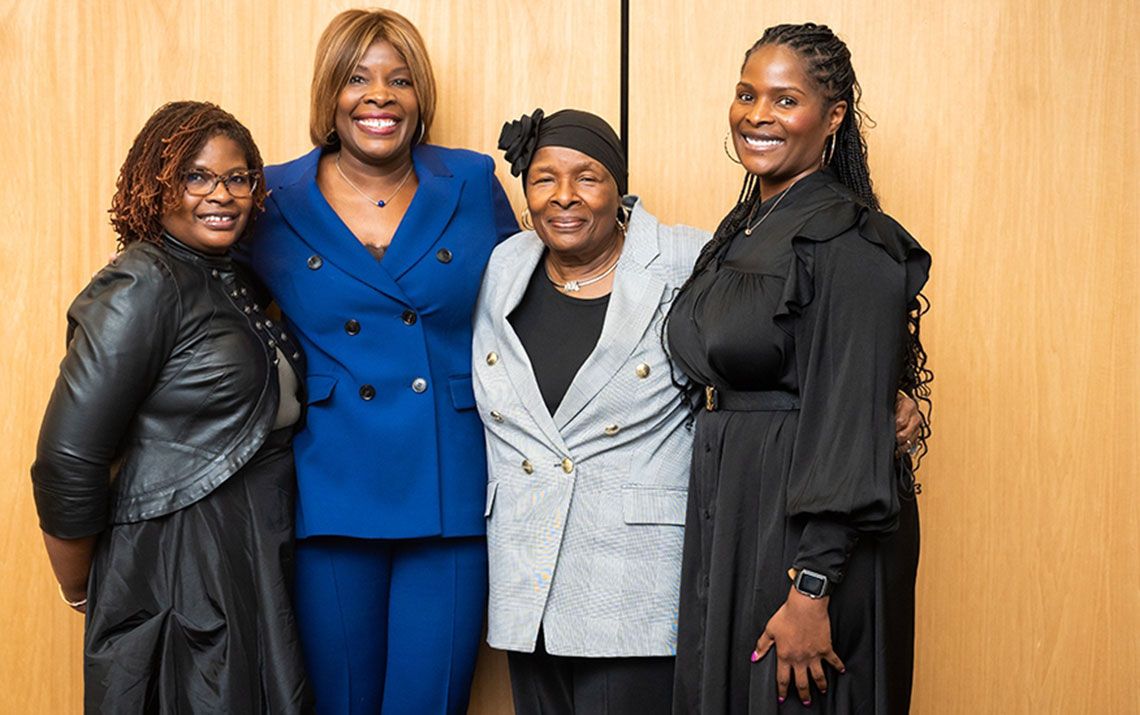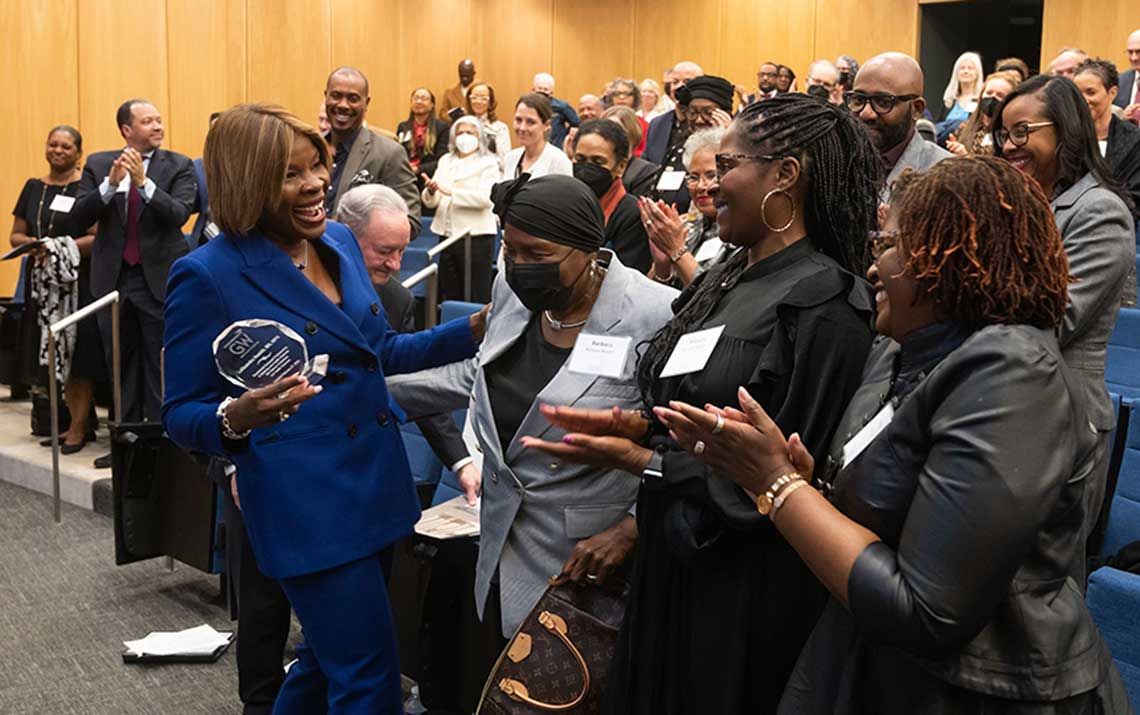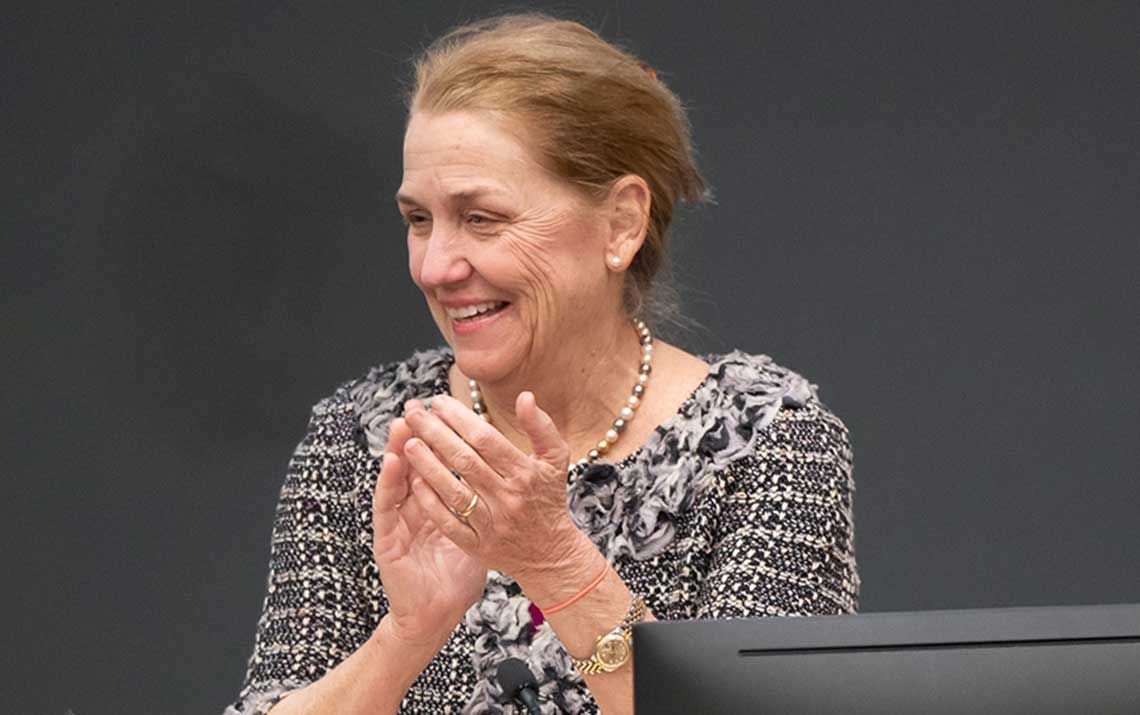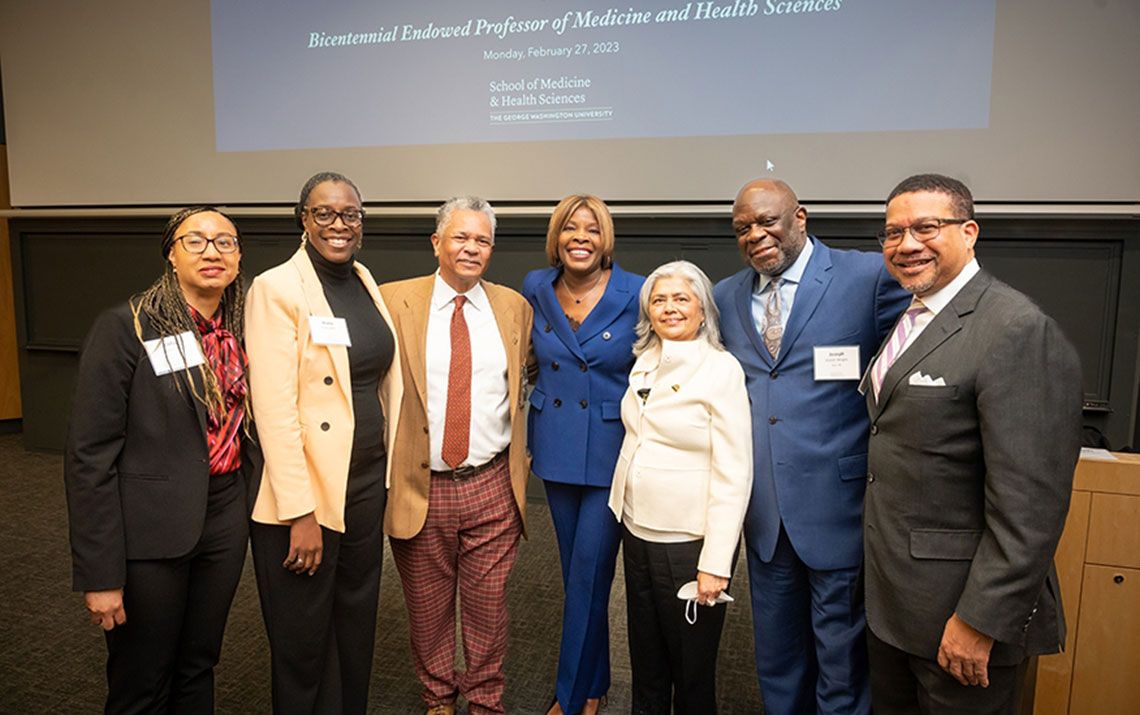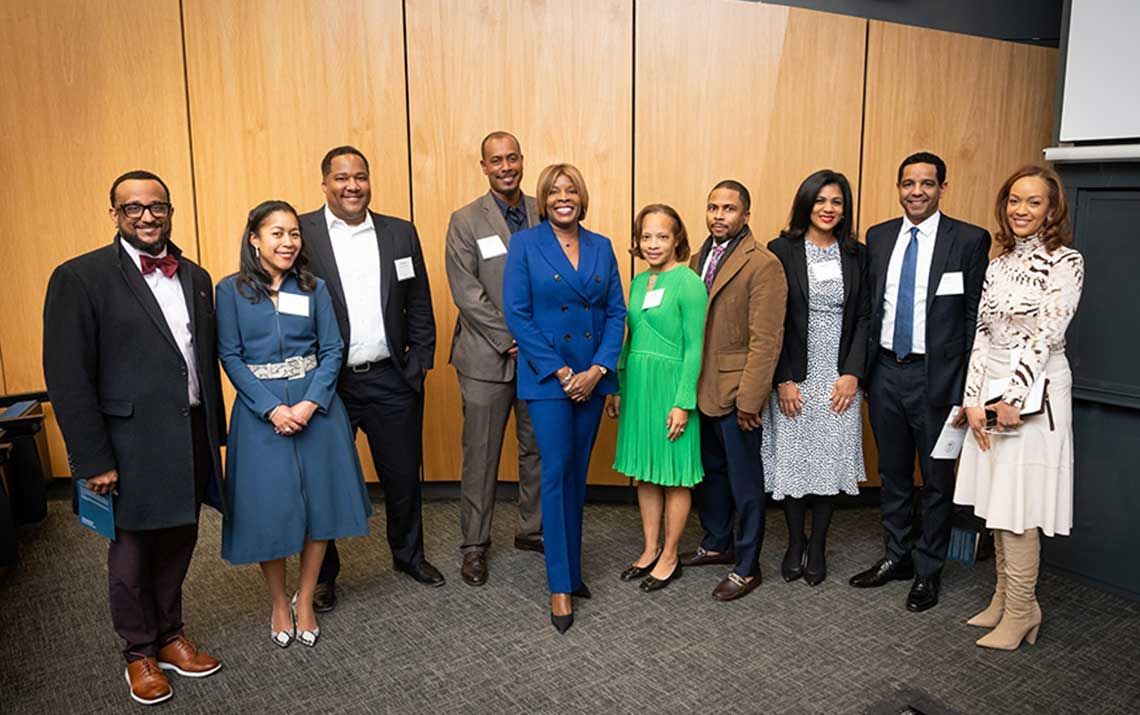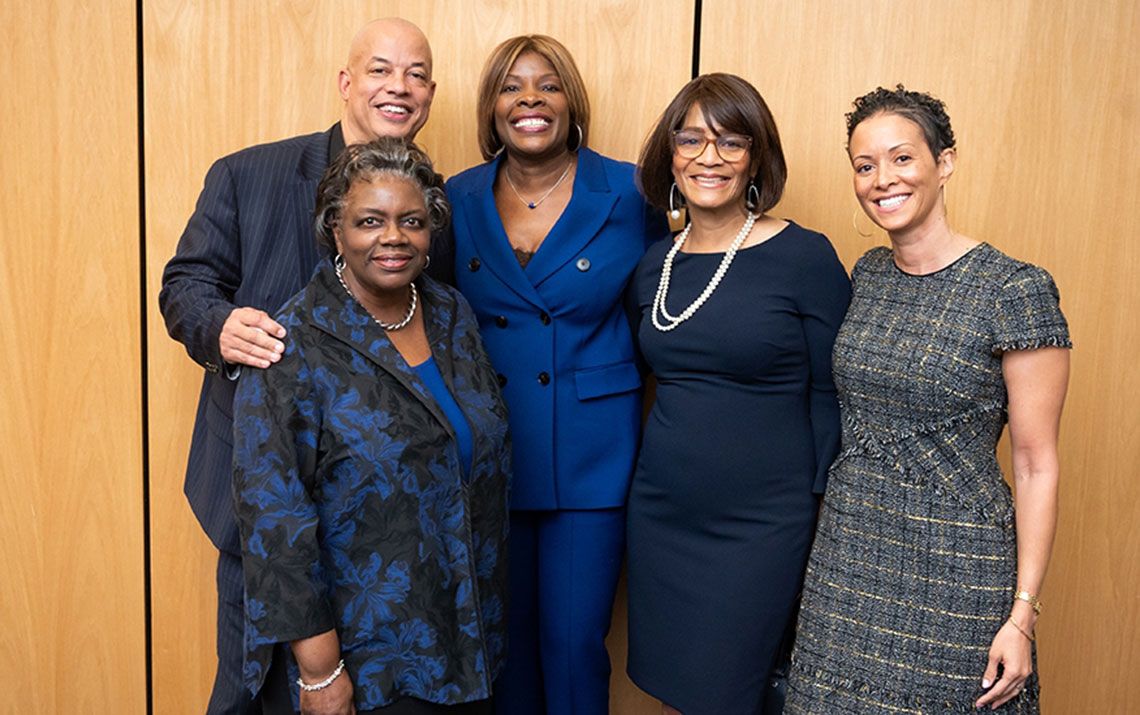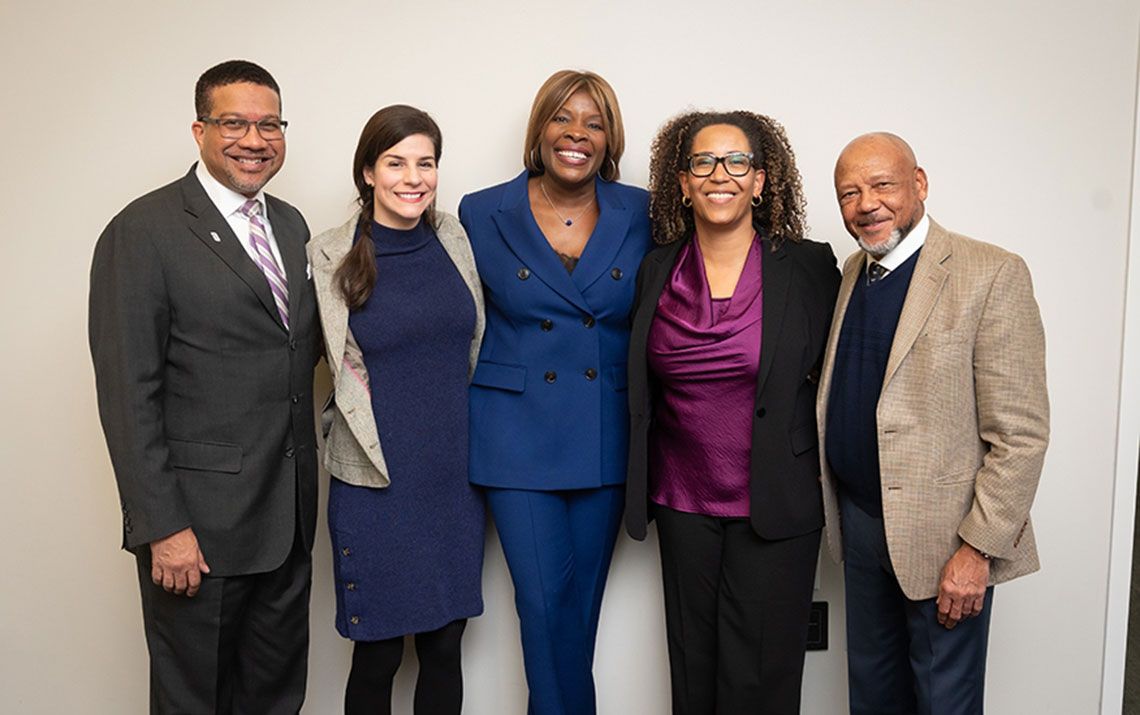Taking the next step in an already extensive career as a physician and public health official, LaQuandra S. Nesbitt, MD, MPH, was formally installed as the inaugural Bicentennial Endowed Professor of Medicine and Health Sciences at the George Washington University (GW) School of Medicine and Health Sciences (SMHS), Feb. 27.
Nesbitt joined SMHS in November 2022 as the Senior Associate Dean for Population Health Sciences and Health Equity, and Executive Director of the Center for Population Health Sciences and Health Equity. She came to GW most recently serving as the director of DC Health, where she led the District’s COVID-19 pandemic response. Nesbitt also has held leadership roles as the interim director of the District’s Department of Behavioral Health and with the Louisville Metro Department of Public Health and Wellness, as well as a faculty appointment at the University of Maryland. Throughout her career she has guided innovations in public health and health care delivery.
“I really am a strong believer that individuals can make a difference,” said Barbara L. Bass, MD, RESD ’86, professor of surgery, Walter A. Bloedorn Chair of Administrative Medicine, vice president for health affairs, dean of SMHS and CEO of The GW Medical Faculty Associates, in her introduction. “I strongly believe Dr. Nesbitt is one of those very special people who can have a genuine impact. Some people really do change the world, and I think that she has that potential to do that here at GW and in our great national city.”
Nesbitt’s endowed professorship is one of 14 newly endowed professorships university-wide, established with proceeds from the sale of the university’s partnership interest in GW Hospital. Nine of those endowed professorships have been directed to SMHS, becoming the Bicentennial Professorships, enabling SMHS to recruit and retain the best faculty, researchers, and clinicians across a broad range of disciplines.
“An endowed professorship is very significant. It signals high achievement by the chair holder,” said GW President Mark S. Wrighton, PhD. “This is the most important honor that can be extended to a faculty member here at GW. It is an honor, it provides support, and it is a very important resource for us to extend the academic and patient care mission of the university.”
As she addressed the audience, Nesbitt admitted that she is not one for ceremony, however, before family, friends, and former colleagues, she confessed, “the magnitude of this moment is not lost on me. … [T]here are not many black women in medicine, and even fewer black women are professors, and fewer still who are endowed chair positions. So truly, the magnitude of the moment is not lost on me.”
Nesbitt is no stranger to SMHS. She presented the keynote address at the 2022 MD program diploma ceremony and, since its earliest days, she has been an active participant in the annual Clinical Public Health Summits.
“Dr. Nesbitt has long been one of the star participants in our clinical public health programs, that trains our MD and physician assistant students here at GW, not just to be doctors and clinicians providing one-on-one care for their patients, but also how to care for their communities and how to address population health,” said Bass.
After an extensive career guiding major state and local health care organizations, Nesbitt, a board-certified family physician, was inspired by Dean Bass to bring that experience and vision to GW SMHS. Her mission, she told the audience, is to ensure GW’s academic medical enterprise is people-centric and offers the community as a whole the opportunity to get the best health care and have the best health outcomes. She hopes to advance GW SMHS’ research, education and community engagement initiatives to improve the health and well-being of patients and communities served by GW’s academic medical enterprise with a focus on achieving health equity in Washington, D.C.
“We have the opportunity to improve the health of lives in a way that has not been done before,” said Nesbitt. “Wouldn’t that be remarkable, that regardless of where people were born, what socio-economic conditions that they were born into, that racially minoritized communities are going to have the same opportunities for health and well-being as everyone else.”
